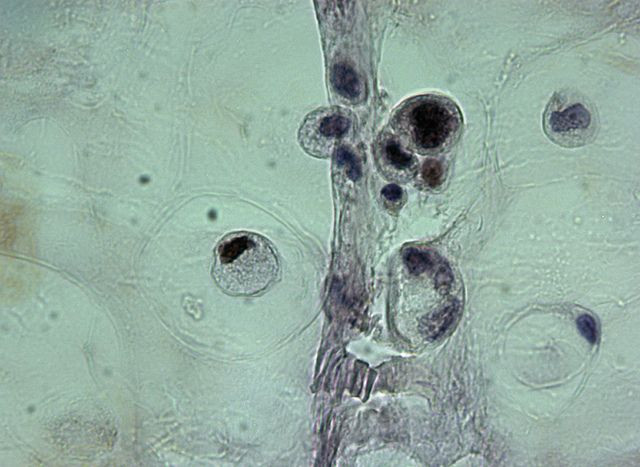Catching Pancreatic Cancer Early: Simple Blood Test Spots Genetic Traces Of Disease

A new test may allow early detection of pancreatic cancer, according to a new study. Researchers from Johns Hopkins have determined that a simple blood test may reveal epigenetic alterations indicative of cancer growth in the pancreas – a glandular organ located in the digestive system. The findings may revolutionize screening protocols for the disease that currently kills 95 percent of the 45,220 Americans it affects annually.
The study, which was supported by grants from the National Institutes of Health’s (NIH) National Cancer Institute, sought to establish new methods of detecting pancreatic cancer before it is too late. Today, the overall five-year survival rate for people with cancer of the pancreas is an abysmal 5 percent, as the disease is typically not detected until the tumor growth has spread to other parts of the body through metastasis. According to Nita Ahuja, associate professor of oncology, surgery, and urology at Johns Hopkins University School of Medicine and lead author of the study, the new findings may represent the first step towards a reliable screening strategy.
"We have mammograms to screen for breast cancer and colonoscopies for colon cancer but we have had nothing to help us screen for pancreatic cancer," she said in a press release. "While far from perfect, we think we have found an early detection marker for pancreatic cancer that may allow us to locate and attack the disease at a much earlier stage than we usually do."
Using a highly sensitive method called Methylation on Beads (MOB), Ahuja and her colleagues were able to identify two minute alterations in blood samples collected from patients with pancreatic cancer. In 81 percent of the 42 samples, the found BNC1 and ADAMTS1 – two genes that were not found together in samples from patients without pancreatic cancer or patients with a history of pancreatitis. The team found that in pancreatic cancer cells, slight modifications to these genes prevent them from generating their protein product.
Hopefully, the new findings will accelerate the development of more effective treatment and screening methods. That said, more research is needed, as the study’s results must first be replicated on a larger scale. The authors also stressed that a commercialized version of the blood test may come to be reserved for high-risk individuals rather than the general public.
Source: Novel Methylation Biomarker Panel for the Early Detection of Pancreatic Cancer. Joo Mi Yi, Angela A. Guzzetta, Vasudev Bailey, Stephanie R. Downing, Leander Van Neste, Katherine B Chiappinelli, Brian Keeley, Alejandro Stark, Alexander Herrera, Christopher L Wolfgang, Emmanouil P. Pappou, Christine A. Iacobuzio-Donahue, Michael Goggins, James G. Herman, Tza-Huei Wang, Stephen B. Baylin, and Nita Ahuja. Clin Cancer Res clincanres.3224.2012; Published OnlineFirst October 2, 2013
Published by Medicaldaily.com



























